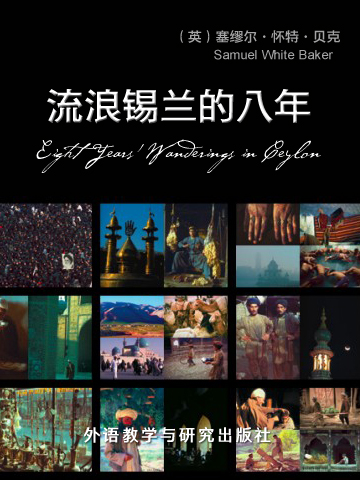如果你想了解有关老派的打猎方式与殖民时期的知识,这本书就是真正的珍宝。
Colombo- Dullness of the Town-Cinnamon Garden-A Cingalese Appo-Ceylon Sport-Jungle Fever- Newera Ellia- Energy of Sir E. Barnes- Influence of the Governor- Projected Improvements.
It was in the year 1845 that the spirit of wandering allured me toward Ceylon: little did I imagine at that time that I should eventually become a settler.
The descriptions of its sports, and the tales of hairbreadth escapes from elephants, which I had read in various publications, were sources of attraction against which I strove in vain; and I at length determined upon the very wild idea of spending twelve months in Ceylon jungles.
It is said that the delights of pleasures in anticipation exceed the pleasures themselves: in this case doubtless some months of great enjoyment passed in making plans of every description, until I at length arrived in Colombo, Ceylon's seaport capital.
I never experienced greater disappointment in an expectation than on my first view of Colombo. I had spent some time at Mauritius and Bourbon previous to my arrival, and I soon perceived that the far-famed Ceylon was nearly a century behind either of those small islands.
Instead of the bustling activity of the Port Louis harbor in Mauritius, there were a few vessels rolling about in the roadstead, and some forty or fifty fishing canoes hauled up on the sandy beach. There was a peculiar dullness throughout the town - a sort of something which seemed to say, "Coffee does not pay." There was a want of spirit in everything. The ill-conditioned guns upon the fort looked as though not intended to defend it; the sentinels looked parboiled; the very natives sauntered rather than walked; the very bullocks crawled along in the midday sun, listlessly dragging the native carts. Everything and everybody seemed enervated, except those frightfully active people in all countries and climates, "the custom-house officers:" these necessary plagues to society gave their usual amount of annoyance.
这本书解释了那些真正享受大自然恩赐的环境和农业生活方式的人们的自然生活方式。
A population of some millions wholly dependent upon the supply of rice for their existence would be thrown into sudden starvation by the withdrawal of the water. Thus have the nations died out like a fire for lack of fuel. This cause will account for the decay of the great cities of Ceylon. The population gone, the wind and the rain would howl through the deserted dwellings, the white ants would devour the supporting beams.
- CHAPTER I.
- CHAPTER II.
- CHAPTER III.
- CHAPTER IV.
- CHAPTER V.
- CHAPTER VI.
- CHAPTER VII.
- CHAPTER VIII.
- CHAPTER IX.
- CHAPTER X.
- CHAPTER XI.
- CHAPTER XII.
- 书评 写书评
- 笔记
-
书评加载中...













 京公网安备 11010802032529号
京公网安备 11010802032529号
笔记加载中...